37 start with S start with S
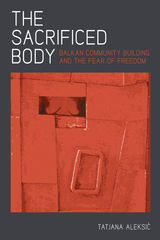
In The Sacrificed Body, Tatjana Aleksic examines the widespread use of the sacrificial metaphor in cultural texts and its importance to sustaining communal ideologies in the Balkan region. Aleksic further relates the theme to the sanctioning of ethnic cleansing, rape, and murder in the name of homogeneity and collective identity. Aleksic begins her study with the theme of the immurement of a live female body in the foundation of an important architectural structure, a trope she finds in texts from all over the Balkans. The male builders performing the sacrificial act have been called by a higher power who will ensure the durability of the structure and hence the patriarchal community as a whole.
In numerous examples ranging from literature to film and performance art, Aleksic views the theme of sacrifice and its relation to exclusion based on gender, race, class, sexuality, religion, or politics for the sake of community building. According to Aleksic, the sacrifice narrative becomes most prevalent during times of crisis brought on by wars, weak governments, foreign threats, or even globalizing tendencies. Because crisis justifies the very existence of restrictive communities, communalist ideology thrives on its perpetuation. They exist in a symbiotic relationship. Aleksic also acknowledges the emancipatory potential of a genuine community, after it has shaken off its ideological character.
Aleksic employs cultural theory, sociological analysis, and human rights studies to expose a historical narrative that is predominant regionally, if not globally. As she determines, in an era of both Western and non-Western neoliberalism, elitist hegemony will continue to both threaten and bolster communities along with their segregationist tactics.
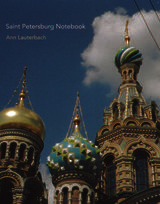
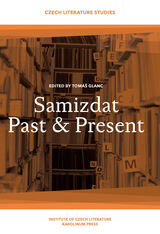

First published posthumously in 1623, Scanderbeide reemerges here in an adroit English prose translation that maintains the suspense of the original text and gives ample context to its rich cultural implications.
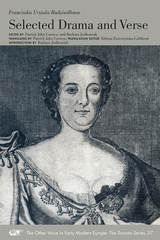
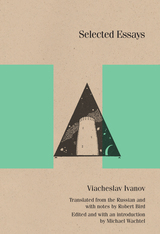
A poet, critic, and theoretician during the Silver Age of Russian poetry, at the turn of the twentieth century, Viacheslav Ivanov was dubbed "Viacheslav the Magnificent" by his contemporaries for his erudition, sumptuous and allusive poetry, and brilliant essays. He provided Russian Symbolism with theoretical underpinnings based on classical and biblical mythology, the aesthetics of music, philosophy ranging from Plato and Kant to Schopenhauer and Nietzsche, and a profound knowledge of classical and modern European poetry.
In choosing material for this volume of essays, Robert Bird and Michael Wachtel have covered a broad range of Ivanov's interests: the aesthetics of Symbolism, theater, culturological concerns, and on such influential figures of the period as Nietzsche, Solovyov, Tolstoy, and Scriabin. Also included are extensive notes on the essays in which classical, biblical, and poetic citations and allusions are identified, the aesthetic and theoretical contexts are clarified, and certain translation problems are briefly discussed. This volume provides valuable insight into the theory of Symbolism as it developed in Russia.
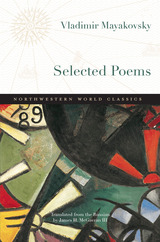
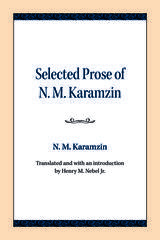
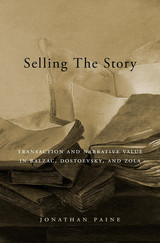
A literary scholar and investment banker applies economic criticism to canonical novels, dramatically changing the way we read these classics and proposing a new model for how economics can inform literary analysis.
Every writer is a player in the marketplace for literature. Jonathan Paine locates the economics ingrained within the stories themselves, revealing how a text provides a record of its author’s attempt to sell the story to his or her readers.
An unusual literary scholar with a background in finance, Paine mines stories for evidence of the conditions of their production. Through his wholly original reading, Balzac’s The Splendors and Miseries of Courtesans becomes a secret diary of its author’s struggles to cope with the commercializing influence of serial publication in newspapers. The Brothers Karamazov transforms into a story of Dostoevsky’s sequential bets with his readers, present and future, about how to write a novel. Zola’s Money documents the rise of big business and is itself a product of Zola’s own big business, his factory of novels.
Combining close readings with detailed analyses of the nineteenth-century publishing contexts in which prose fiction first became a product, Selling the Story shows how the business of literature affects even literary devices such as genre, plot, and repetition. Paine argues that no book can be properly understood without reference to its point of sale: the author’s knowledge of the market, of reader expectations, and of his or her own efforts to define and achieve literary value.




The Wedding of Vlahinjic Alija represents a unique experiment in field collecting of oral traditional epic poetry. In order to determine whether and exactly how the text of a long epic would change as the best of oral poets told and retold it, Milman Parry first made a complete audio-recording of Avdo Međedović singing this long heroic narrative, and then some days later had the entire epic taken down again by dictation from the same singer.
Both texts, the sung (6053 verses) and the dictated (5883 verses) are presented in this volume, showing precisely the effects both of recomposition and of the “intervention” of writing by an amanuensis. Osmanbeg Delibegović i Pavičević Luka is 13,326 verses long, a modern oral traditional epic of truly Homeric length. It is the longest complete and continuous oral epic text that has yet been recorded anywhere in the modern world.
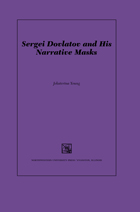
This book provides an introduction to Sergei Dovlatov (1941–1990) that is closely attentive to the details of his life and work, their place in the history of Soviet society and literature, and of émigré culture during this turbulent period. A journalist, newspaper editor, and prose writer, Dovlatov is most highly regarded for his short stories, which draw heavily on his experiences in Russia before 1979, when he was forced out of the country. During compulsory military service, before becoming a journalist, he worked briefly as a prison camp guard—an experience that gave him a unique perspective on the operations of the Soviet state. After moving to New York, Dovlatov published works (in the New Yorker and elsewhere) that earned him considerable renown in America and back in Russia. Young’s book presents a valuable critical overview of the prose of a late twentieth-century master within the context of the prevailing Russian and larger literary culture.

The authors included in this volume—Ilarion, Klim Smoljatic, and Kirill of Turov—are remarkable for both their personal and literary achievements. Appointed in 1051 by Prince Jaroslav the Wise, Ilarion was the first of only two recorded “native” metropolitans of Kiev. His “Sermon on Law and Grace” constitutes the finest piece of eleventh-century Rus’ rhetorical literature. Klim Smoljatic, the second “native” metropolitan of Rus’ (from 1147), is the author of the controversial “Epistle to Foma,” which addresses the debate over the proper nature and limits of Christian learning. Finally, the twelfth-century monk Kirill of Turov is best known for his collection of allegorical lessons and some of the most accomplished sermons of Kievan Rus’. The volume contains the first complete translations of the “Epistle to Foma” and the lessons and sermons of Kirill, as well as an entirely new rendering of the “Sermon on Law and Grace.”
Simon Franklin prefaces the texts with a substantial introduction that places each of the three authors in their historical context and examines the literary qualities as well as textual complexities of these outstanding works of Rus’ literature.
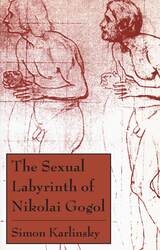
"A brilliant new biography that will long be prized for its illuminating psychological insights into Gogol's actions, its informative readings of his fiction and drama, and its own stylistic grace and vivacity."—Edmund White, Washington Post Book World
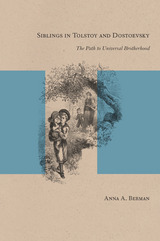
Anna A. Berman’s book brings to light the significance of sibling relationships in the writings of Tolstoy and Dostoevsky. Relationships in their works have typically been studied through the lens of erotic love in the former, and intergenerational conflict in the latter.
In close readings of their major novels, Berman shows how both writers portray sibling relationships as a stabilizing force that counters the unpredictable, often destructive elements of romantic entanglements and the hierarchical structure of generations. Power and interconnectedness are cast in a new light. Berman persuasively argues that both authors gradually come to consider siblinghood a model of all human relations, discerning a career arc in each that moves from the dynamics within families to a much broader vision of universal brotherhood.
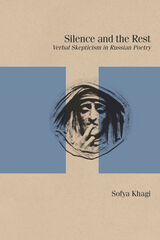
Scholars have long noted the deeply rooted veneration of the power of the word—both the expressive and communicative capacities of language—in Russian literature and culture. In her ambitious book Silence and the Rest, Sofya Khagi illuminates a consistent counternarrative, showing how, throughout its entire history, Russian poetry can be read as an argument for what she calls “verbal skepticism.” Although she deals with many poets from a two-century tradition, Khagi gives special emphasis to Osip Mandelstam, Joseph Brodsky, and Timur Kibirov, offering readings that add new layers of meaning to their work. She posits a long-running dialogue between the poets and the philosophers and theorists who have also been central to the antiverbal strain of Russian culture. Unlike its Western counterpart, the Russian philosophical and theological doubt of the efficacy of the word still grants the author, and literature itself, an ethical force—the inadequacies of language notwithstanding.
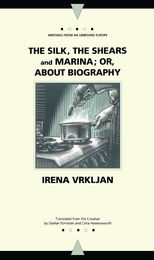
These are the first two volumes of the Croatian poet and novelist Irena Vrkljan's lyrical autobiography. Although each novel illuminates the other, they also stand alone as original and independent works of art. In The Silk, the Shears, Vrkljan traces the symbolic and moral significance of her life, and her vision of the fate of women in her mother's time and in her own. Marina continues the intense analysis of the poetic self, using the life of Marina Tsvetaeva to meditate on the processes behind biography.
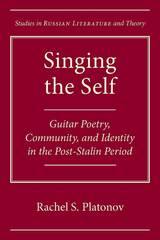
This book is a study of a Soviet cultural phenomenon of the 1950s through the 1980s known as guitar poetry—songs accompanied by guitar and considered poetry in much the same way as those of, for example, Bob Dylan. Platonov’s is the most comprehensive book in English to date to analyze guitar poetry, which has rarely received scholarly attention outside of Russia. Going well beyond the conventional, text-centered view of guitar poetry as a form of political or artistic dissent, largely a function of the Cold War climate in which it began, Platonov argues for a more complex understanding of guitar poetry as a means of self-invention and community formation. Although grounded in literary studies, the book effectively brings historical, anthropological, and musicological perspectives to bear on an understudied phenomenon of the post-Stalin period.

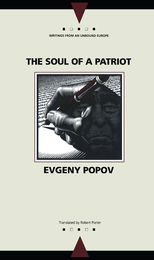
Freely parodying conformist Russian writing, this novel takes its lead as much from Sterne and Diderot as from the brilliant Russian satirist Mikhail Zoshchenko. In the offhand witticisms and jaunty humor speaks the spirit that survived the "era of stagnation" of Soviet literature.
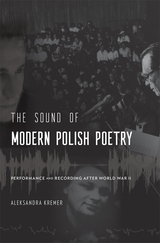
An illuminating new study of modern Polish verse in performance, offering a major reassessment of the roles of poets and poetry in twentieth-century Polish culture.
What’s in a voice? Why record oneself reading a poem that also exists on paper? In recent decades, scholars have sought to answer these questions, giving due credit to the art of poetry performance in the anglophone world. Now Aleksandra Kremer trains a sharp ear on modern Polish poetry, assessing the rising importance of authorial sound recordings during the tumultuous twentieth century in Eastern Europe.
Kremer traces the adoption by key Polish poets of performance practices intimately tied to new media. In Polish hands, tape recording became something different from what it had been in the West, shaped by its distinctive origins behind the Iron Curtain. The Sound of Modern Polish Poetry reconstructs the historical conditions, audio technologies, and personal motivations that informed poetic performances by such luminaries as Czesław Miłosz, Wisława Szymborska, Aleksander Wat, Zbigniew Herbert, Miron Białoszewski, Anna Swir, and Tadeusz Różewicz. Through performances both public and private, prepared and improvised, professional and amateur, these poets tested the possibilities of the physical voice and introduced new poetic practices, reading styles, and genres to the Polish literary scene. Recording became, for these artists, a means of announcing their ambiguous place between worlds.
Kremer’s is a work of criticism as well as recovery, deploying speech-analysis software to shed light on forgotten audio experiments—from poetic “sound postcards,” to unusual home performances, to the final testaments of writer-performers. Collectively, their voices reveal new aesthetics of poetry reading and novel concepts of the poetic self.

The nineteenth-century novel is generally assumed to owe its basic social imaginaries to the ideologies, institutions, and practices of modern civil society. In Sovereign Fictions, Ilya Kliger asks what happens to the novel when its fundamental sociohistorical orientation is, as in the case of Russian realism, toward the state. Kliger explores Russian realism’s distinctive construals of sociality through a broad range of texts from the 1830s to the 1870s, including major works by Tolstoy, Dostoevsky, Gogol, Pushkin, Lermontov, Goncharov, and Turgenev, and several lesser-known but influential books of the period, including Alexander Druzhinin’s Polinka Saks (1847), Aleksei Pisemsky’s One Thousand Souls (1858), and Vasily Sleptsov’s Hard Times (1865). Challenging much current scholarly consensus about the social dynamics of nineteenth-century realist fiction, Sovereign Fictions offers an important intervention in socially inflected theories of the novel and in current thinking on representations of power and historical poetics.
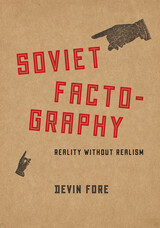
This is the first major English-language study of factography, an avant-garde movement of 1920s modernism. Devin Fore charts this style through the work of its key figures, illuminating factography’s position in the material culture of the early Soviet period and situating it as a precursor to the genre of documentary that arose in the 1930s. Factographers employed photography and film practices in their campaign to inscribe facts and to chronicle modernization as it transformed human experience and society. Fore considers factography in light of the period’s explosion of new media technologies—including radio broadcasting, sound in film, and photo-media innovations—that allowed the press to transform culture on a massive scale.
This theoretically driven study uses material from Moscow archives and little-known sources to highlight factography as distinct from documentary and Socialist Realism and to establish it as one of the major twentieth-century avant-garde forms. Fore covers works of photography, film, literature, and journalism together in his considerations of Soviet culture, the interwar avant-gardes, aesthetics, and the theory of documentary.
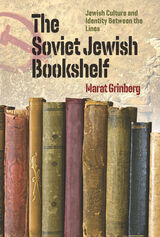
In The Soviet Jewish Bookshelf, Marat Grinberg argues that in an environment where Judaism had been all but destroyed, and a public Jewish presence routinely delegitimized, reading uniquely provided many Soviet Jews with an entry to communal memory and identity. The bookshelf was both a depository of selective Jewish knowledge and often the only conspicuously Jewish presence in their homes. The typical Soviet Jewish bookshelf consisted of a few translated works from Hebrew and numerous translations from Yiddish and German as well as Russian books with both noticeable and subterranean Jewish content. Such volumes, officially published, and not intended solely for a Jewish audience, afforded an opportunity for Soviet Jews to indulge insubordinate feelings in a largely safe manner. Grinberg is interested in pinpointing and decoding the complex reading strategies and the specifically Jewish uses to which the books on the Soviet Jewish bookshelf were put. He reveals that not only Jews read them, but Jews read them in a specific way.
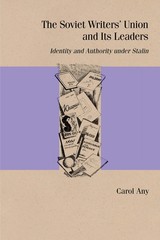
Winner, University of Southern California Book Prize in Literary and Cultural Studies
The Soviet Writers’ Union offered writers elite status and material luxuries in exchange for literature that championed the state. This book argues that Soviet ruler Joseph Stalin chose leaders for this crucial organization, such as Maxim Gorky and Alexander Fadeyev, who had psychological traits he could exploit. Stalin ensured their loyalty with various rewards but also with a philosophical argument calculated to assuage moral qualms, allowing them to feel they were not trading ethics for self‑interest.
Employing close textual analysis of public and private documents including speeches, debate transcripts, personal letters, and diaries, Carol Any exposes the misgivings of Writers’ Union leaders as well as the arguments they constructed when faced with a cognitive dissonance. She tells a dramatic story that reveals the interdependence of literary policy, communist morality, state‑sponsored terror, party infighting, and personal psychology. This book will be an important reference for scholars of the Soviet Union as well as anyone interested in identity, the construction of culture, and the interface between art and ideology.
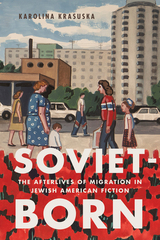
Entering an immigrant, Soviet-born standpoint creates an alternative and sometimes complementary pattern of how the Eastern and Central European past and present resonate with American Jewishness. The novels, short stories, and graphic novels considered here often stage strikingly fresh variations on key older themes, including cultural geography, the memory of World War II and the Holocaust, communism, gender and sexuality, genealogy, and finally, migration. Soviet-Born demonstrates how these diasporic writers, with their critical stance toward identity categories, open up the field of what is canonically Jewish American to broader contemporary debates.
This book is also freely available online as an open-access digital edition.

Svetlana Evdokimova tackles this gap in Chekhov scholarship, examining the profound connections between his unstated philosophy and his artistic production. Arguing that Chekhov’s four major plays (The Cherry Orchard, Three Sisters, The Seagull, and Uncle Vanya) constitute a kind of cycle, Staging Existence offers a major reappraisal of this critical playwright in Russian intellectual history. Evdokimova’s deep, careful research into Chekhov’s engagement with contemporary philosophy provides insight into both Chekhov’s oeuvre and the writer himself.
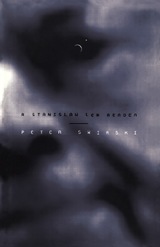

What led to the breakdown of the Soviet Union? Steven Solnick argues, contrary to most current literature, that the Soviet system did not fall victim to stalemate at the top or to a revolution from below, but rather to opportunism from within. In three case studies--on the Communist Youth League, the system of job assignments for university graduates, and military conscription--Solnick makes use of rich archival sources and interviews to tell the story from a new perspective, and to employ and test Western theories of the firm in the Soviet environment. He finds that even before Gorbachev, mechanisms for controlling bureaucrats in Soviet organizations were weak, allowing these individuals great latitude in their actions. Once reforms began, they translated this latitude into open insubordination by seizing the very organizational assets they were supposed to be managing. Thus, the Soviet system, Solnick argues, suffered the organizational equivalent of a colossal bank run. When the servants of the state stopped obeying orders from above, the state's fate was sealed.
By incorporating economic theories of institutions into a political theory of Soviet breakdown and collapse, Stealing the State offers a powerful and dynamic account of the most important international political event of the later twentieth century.
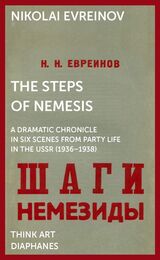
In the 1910s the Russian theater director and theorist Nikolai Evreinov (1879–1953) insisted on the theatricalization of life. Twenty years later, Evreinov, who had left Russia in 1924, was in exile in Paris when Stalin staged three elaborate political show trials in Moscow. Evreinov then meticulously read the transcripts of the trials in the Russian-language press, collected material on Nikolai Bukharin and the other defendants, consulted with experts, and finally wrote a play, his response to the staging of a judicial farce. With this response, he also wanted to rehabilitate his idea of the theatricalization of life. After all, the theatricalization of life does not mean performing false confessions, constructing conspiracies, fabricating facts, or casting hired witnesses. In his theatrical theory, Evreinov was careful not to make the theater of life invisible. His play is therefore not a historical reconstruction, but an imaginary look behind the scenes, in which the Stalinist perpetrators confess to the real crime in the end: the theater. Expertly translated into English for the first time by Zachary King, The Steps of Nemesis brings a fascinating play to a whole new world.
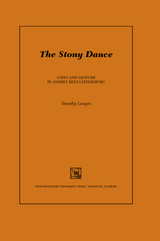
Thoroughly versed in Russian and European modernism, in Bely's biography and writings, and in twentieth-century literary theory, Langen constructs an original analytic scheme for reading Petersburg. Guided by Bely's fertile but challenging notions of art and philosophy, he analyzes the novel first as an object embodying intentions and essences, then as a pattern of signification and events, and finally as a dance of gestures that coordinate body and meaning, regularity and surprise, self and other, and author, novel, and reader. The terms are derived from Bely's own writings, but they are nuanced with reference to Russian and European contexts and clarified with reference to philosophy and literary theory. Langen shows how Bely invariably challenges his own concepts and patterns, thereby creating an unusually demanding and dynamic text. In finding an approach to these enriching difficulties, this book at long last shows readers a welcoming way into Bely's thought, and his masterwork, and their place in the complex world of early twentieth-century literature.
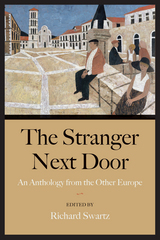
The Balkans have been so troubled by violence and misunderstanding that we have the verb “balkanize,” meaning to break up into smaller, warring components. While some of the region’s artists and thinkers have invariably fallen into nationalistic tendencies, the twenty-two prominent authors represented here, from the erstwhile Yugoslavia and its neighbors Albania and Bulgaria, have chosen to attempt to bridge these divides. The essays, biographical sketches, and stories in The Stranger Next Door form a project of understanding that picks up where politics fail. The English-language translation joins editions of the book that appeared concurrently in all of the participating countries.

How should the countries in the Baltic Sea region and their allies meet the strategic challenges posed by an openly aggressive and expansionist Russia? NATO and the nonaligned states in the region are now more concerned about an external threat than they have been since the end of the Cold War. Russia has been probing air space, maritime boundaries, and even land borders from the Baltic republics to Sweden. Russia's undermining of Ukraine and annexation of Crimea worries former Soviet republics with Russian minority populations, nonaligned Sweden and Finland are enhancing their cooperation with NATO, and the Trump presidency has created some doubt about America's willingness to follow through on NATO's collective defense commitment.
Ann-Sofie Dahl brings together an international group of experts to examine Baltic security issues on a state-by-state basis and to contemplate what is needed to deter Russia in the region. The contributors analyze ways to strengthen regional cooperation, and to ensure that security in the region stays at the top of the agenda at a time of many competing strategic perspectives in the transatlantic community. This book will be of great interest to foreign policy and defense practitioners in the US and Europe as well as scholars and students of international relations.
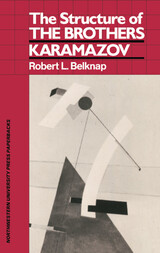
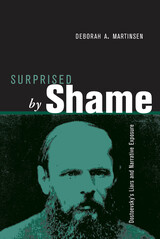
In Surprised by Shame, Deborah A. Martinsen combines shame studies and literary criticism. She begins with a discussion of shame dynamics, including the tendency of those who witness shame to feel shame themselves. Because Dostoevsky identified shame as a fundamental source of lying, Martinsen focuses on scenes when liars are exposed. She argues that by making readers witness such scandal scenes, Dostoevsky surprises them with shame, thereby collapsing the distance between readers and characters and viscerally involving them in his message of human interconnection.
Treating Dostoevsky’s liars as case studies, Surprised by Shame discusses varieties of shame and shamelessness; it also illustrates how Dostoevsky uses lying to indicate and expose subconscious processes. In addition, Martinsen demonstrates how Dostoevsky plucks shame from the realm of character trait and plot motive and embeds it in the narrative dynamics of The Idiot, Demons, and The Brothers Karamazov, thereby plunging readers into fictional experience and ethically transforming them.
By focusing on shame, this book uncovers new perspectives on Dostoevsky as writer and psychologist. By exposing how shame dynamics implicate readers in texts’ ethical actions, it enriches understanding of his tremendous influence on twentieth-century thinkers and writers. Finally, reading Dostoevsky as a prophet of shame-begotten violence reveals his universal relevance in a twenty-first century already scarred by acts of violence.
READERS
Browse our collection.
PUBLISHERS
See BiblioVault's publisher services.
STUDENT SERVICES
Files for college accessibility offices.
UChicago Accessibility Resources
home | accessibility | search | about | contact us
BiblioVault ® 2001 - 2024
The University of Chicago Press









